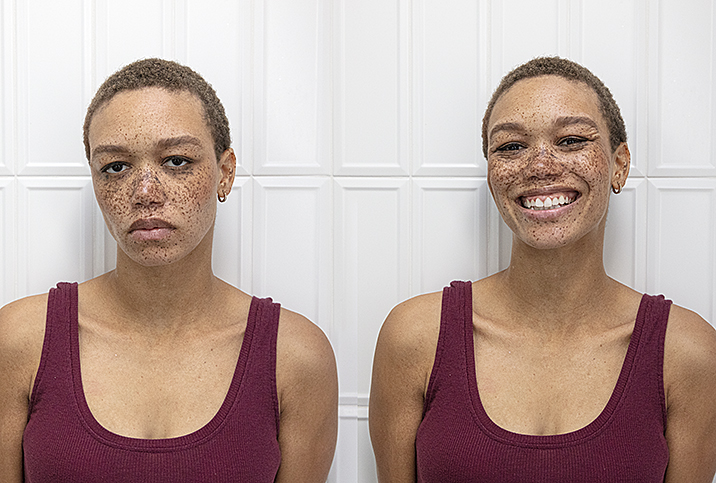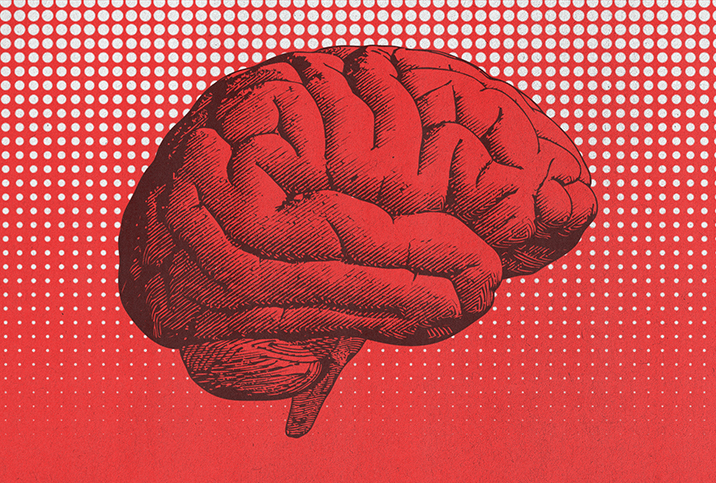How Does Menstruation Affect Your Mental Health?

Many women experience physical and emotional changes related to their menstrual cycle. However, more attention is often given to bodily symptoms while the mental health aspects associated with the menstrual cycle are neglected or ignored.
How does menstruation impact your mental health?
"Mental health and the menstrual cycle can be intertwined," said Mary Jane Minkin, M.D., an OB-GYN with a private practice and a clinical professor in the department of obstetrics, gynecology and reproductive sciences at Yale Medical School in New Haven, Connecticut.
"Many women experience changes in mood and anxiety, as well as physical symptoms such as bloating and cramping when they are approaching menstruation," said Jennifer Reid, M.D., a psychiatrist and writer in Philadelphia who also hosts "The Reflective Doc" podcast.
Emotional alterations are associated with hormonal fluctuations in your body. You may begin to notice changes in your mood a few days before your period arrives. These mood swings may affect your life in a variety of ways, depending on their severity.
The changes can be mild to moderate, referred to as premenstrual syndrome (PMS). Other women may have "more severe mood and anxiety symptoms, as in premenstrual dysphoric disorder (PMDD)," Reid added. It's a severe menstrual-induced mood disorder.
Premenstrual syndrome
Not all women respond in the same way to the ups and downs of hormone levels throughout the menstrual cycle, but some individuals may be more sensitive to these hormonal changes.
"Some women do get extremely moody prior to their periods," Minkin said. "The mild variety of this problem is usually referred to as PMS."
Premenstrual syndrome can begin after ovulation and typically goes away a few days after your menstrual period begins—with different timing for every woman. Researchers attribute the symptoms to falling levels of hormones such as progesterone and estrogen.
Symptoms of premenstrual syndrome (PMS) include:
- Headaches
- Bloating
- Cramps
- Mood swings
- Fatigue
- Feeling restless
- Emotional vulnerability
- Back pain
- Anxiety
- Tender or swollen breasts
- Digestive system changes
- Irritability
- Alterations in sleep patterns
- Problems with concentration
- Appetite changes
- Feelings of sadness
Symptoms of premenstrual syndrome, such as mood changes, may differ with age, becoming more intense during perimenopause—after age 40, although some women begin this stage in their mid-30s. After menopause, PMS stops.
Premenstrual dysphoric disorder
"If you have a severe form which really interferes with your functioning for, say, the week before your period, you may have PMDD or premenstrual dysphoric disorder," Minkin said.
Premenstrual dysphoric disorder is a form of premenstrual syndrome but with severe symptoms. The percentage of women affected is lower (5 percent to 10 percent), according to the Office of Women's Health (OASH). Women with PMDD may experience aggravated and crippling physical and emotional discomfort.
Symptoms of PMDD vary but may include:
- Feeling out of control
- Lower energy
- Lack of interest in daily life
- Feelings of despair and sadness
- Anger that affects other people
- Panic attacks
- Headaches
- Changes in appetite
- Cramps
- Severe mood swings
- Alterations in sleep patterns
- Problems concentrating
- Changes in the digestive system
Who is most at risk of being impacted by menstruation?
"Those with a history or current diagnosis of depression or anxiety may be at greater risk for symptoms," Reid said. "[So may women] with a history of postpartum depression or anxiety, or those with a close female relative with symptoms prior to menstruation."
Family history does factor into your risk of this temporary mental health condition.
Hormonal fluctuations can increase the symptoms of mental disorders, such as depression or anxiety, which can get worse around the time of menstruation.
No symptoms should be ignored, especially when they are aggravating, debilitating or life-threatening, such as those related to severe depression and suicidal thoughts. Talk to your doctor and seek treatment if you are experiencing any of these signs.
Stress is another factor. When your body releases hormones to try to help you through a particularly stressful time in your life, your body can have reactions such as late ovulation, menstrual pain and mood disturbances.
Chronic stress has been linked to both short-term and long-term health problems. People with stress issues should engage in activities to help improve overall well-being—such as walking, yoga and meditation.
What is the impact of physical symptoms on mental health?
"In general, periods themselves can make women feel down, particularly if they are uncomfortable with their periods," Minkin said.
When anti-inflammatory treatments and birth control pills are not helping to relieve symptoms such as severe pain, Minkin recommends women visit a gynecologist to rule out other gynecological problems that could be affecting them.
"You could have something like endometriosis, for which we have some excellent interventions," Minkin said.
Severe cramps and other symptoms can dramatically impact your life and take a toll on your emotions. Your mood can also interfere with your quality of life, creating a cycle of poor wellness where one aspect constantly affects the other.
Different treatments may help you, but in the meantime, you can start by tracking your cycles. With accurate dates, you can notice patterns in your mood, which will allow you to anticipate or foresee the emotional changes that come a few days before your period.
What should women seeking treatment do?
To manage some symptoms such as cramps and headaches, doctors recommend over-the-counter pain relievers such as ibuprofen and naproxen. They may prescribe certain medications after an evaluation, too.
Lifestyle changes can help, Minkin said. But if the symptoms interfere with your daily life, you should consult your gynecologist because certain birth control pills can be quite helpful with PMDD and certain antidepressants, like Prozac, can also be quite helpful.
"For mild to moderate symptoms, we may be able to utilize increased self-care," Reid said. However, when symptoms are more severe, "a medication may be helpful to help prevent further suffering."
Lifestyle care suggested by healthcare providers includes the following:
- Exercise regularly.
- Avoid concentrated carbohydrates before your period.
- Try to limit placing unrealistic expectations on yourself.
- Do meditation and yoga to relieve stress.
- Avoid smoking cigarettes.
- Keep a proper sleep schedule.
- Seek help for your mental health with a specialist.
The bottom line
Dealing with the symptoms of PMS isn't easy. Take it easy on yourself in the days after your period starts. Track your cycle to better manage your symptoms and get the right treatment.




















